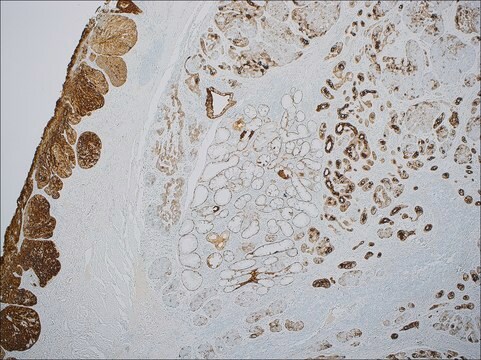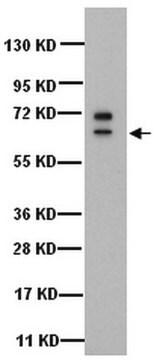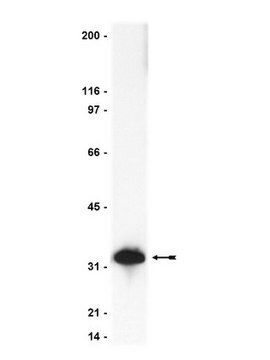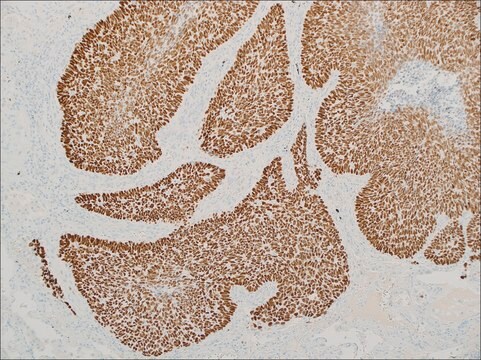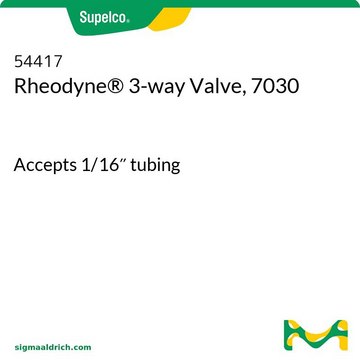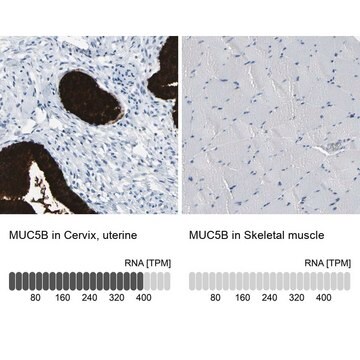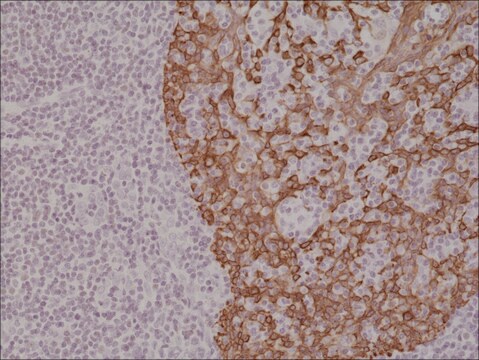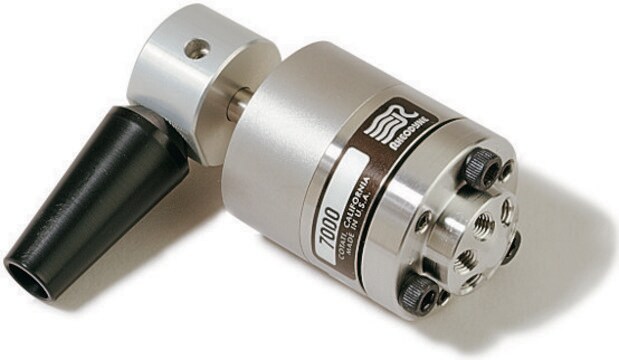おすすめの製品
由来生物
mouse
rabbit
品質水準
100
300
500
結合体
unconjugated
抗体製品の状態
purified immunoglobulin
抗体製品タイプ
primary antibodies
クローン
304-1A5/31A5, monoclonal
詳細
For In Vitro Diagnostic Use in Select Regions (See Chart).
フォーム
buffered aqueous solution
交差性
human
包装
vial of 0.1 mL concentrate (280C-14-ASR)
vial of 0.5 mL concentrate (280C-15-ASR)
bottle of 1.0 mL predilute (280C-17-ASR)
vial of 1.0 mL concentrate (280C-16-ASR)
bottle of 7.0 mL predilute (280C-18-ASR)
濃度
0.01-1 μg/mL (predilute)
2-270 μg/mL (concentrate)
テクニック
immunohistochemistry: 1:100-1:500
アイソタイプ
IgG1
IgG
輸送温度
wet ice
保管温度
2-8°C
遺伝子情報
human ... SCGB2A2(4250)
詳細
Mammaglobin (10 kD) is a breast-associated glycoprotein distantly related to secretoglobin family that includes human uteroglobin and lipophilin. Mammaglobin mRNA is present in high levels in human breast cancer cell lines, which has been shown to be a sensitive marker of breast cancer. When combined with other breast-restricted markers such as GCDFP-15, an overall sensitivity for breast carcinoma of 84% has been achieved. Anti-Mammaglobin can also be used to determine breast origin in the setting of metastatic carcinoma.
品質
 IVD |  IVD |  IVD |  RUO |
物理的形状
Solution in Tris Buffer, pH 7.3-7.7, with 1% BSA and <0.1% Sodium Azide
調製ノート
Download the IFU specific to your product lot and format
Note: This requires a keycode which can be found on your packaging or product label.
Download the latest released IFU
Note: This IFU may not apply to your specific product lot.
Note: This requires a keycode which can be found on your packaging or product label.
Download the latest released IFU
Note: This IFU may not apply to your specific product lot.
その他情報
For Technical Service please contact: 800-665-7284 or email: service@cellmarque.com
適切な製品が見つかりませんか。
製品選択ツール.をお試しください
最新バージョンのいずれかを選択してください:
Zhiqiang Wang et al.
International journal of clinical and experimental pathology, 2(4), 384-389 (2009-01-23)
Identification of metastasis and occult micrometastases of breast cancer demands sensitive and specific diagnostic markers. In this study, we assessed the utility of a mouse monoclonal antibody to human mammaglobin for one such purpose. Immunohistochemical stains were performed on paraffin-embedded
Jae-Ho Han et al.
Archives of pathology & laboratory medicine, 127(10), 1330-1334 (2003-10-03)
Organ specificity is a desirable property of a tumor marker, especially in metastatic adenocarcinomas of unknown primary origin. Mammaglobin, a mammary-specific member of the uteroglobin family, is known to be overexpressed in human breast cancer. We investigated mammaglobin A expression
T P Fleming et al.
Annals of the New York Academy of Sciences, 923, 78-89 (2001-02-24)
The mammaglobin gene encodes a 10-kDa glycoprotein that is distantly related to a family of proteins that includes rat estramustine binding protein (EMBP)/prostatein and human Clara cell 10-kDa protein (CC10)/uteroglobin. Among normal adult tissues, mammaglobin mRNA expression has been detected
Rohit Bhargava et al.
American journal of clinical pathology, 127(1), 103-113 (2006-12-06)
There are limited data that compare the usefulness of mammaglobin with gross cystic disease fluid protein-15 (GCDFP-15) in the identification of breast carcinomas. Whole tissue sections of 29 breast carcinomas with matched lymph node metastases and 63 breast carcinomas on
Eiichi Sasaki et al.
Modern pathology : an official journal of the United States and Canadian Academy of Pathology, Inc, 20(2), 208-214 (2006-12-29)
Previously, we used the reverse transcription-polymerase chain reaction (RT-PCR) to show that mammaglobin (MGB1) can serve as a differential marker of breast cancer metastasis from primary lung cancer. However, mRNA-based methods are not appropriate for use in clinical practices. In
ライフサイエンス、有機合成、材料科学、クロマトグラフィー、分析など、あらゆる分野の研究に経験のあるメンバーがおります。.
製品に関するお問い合わせはこちら(テクニカルサービス)